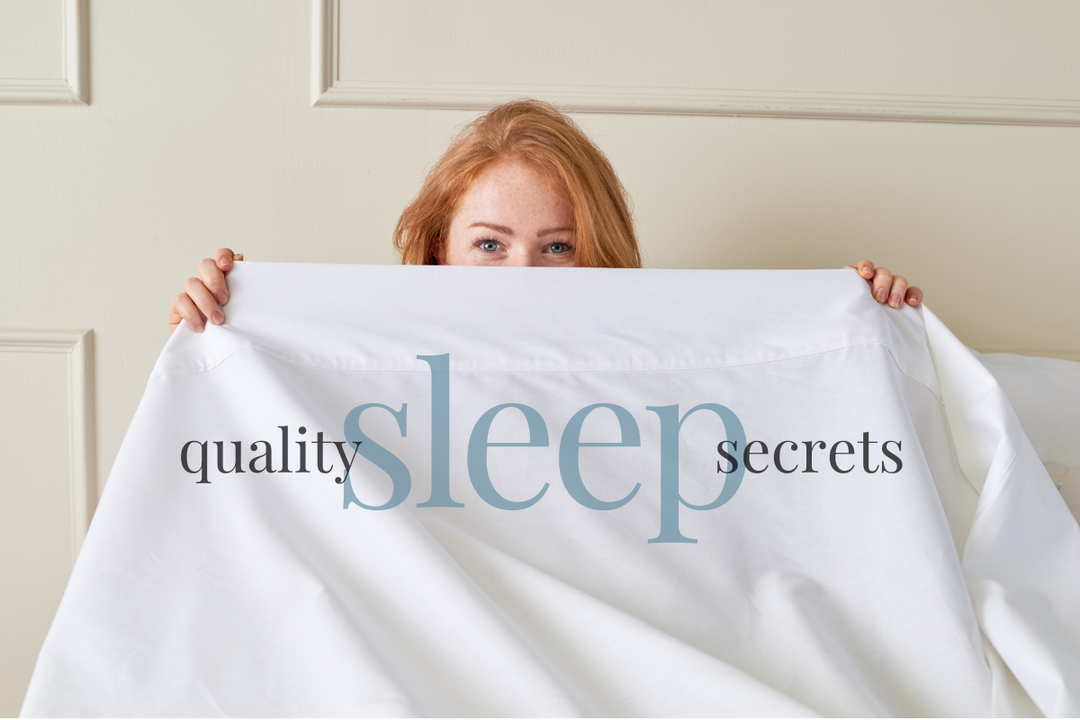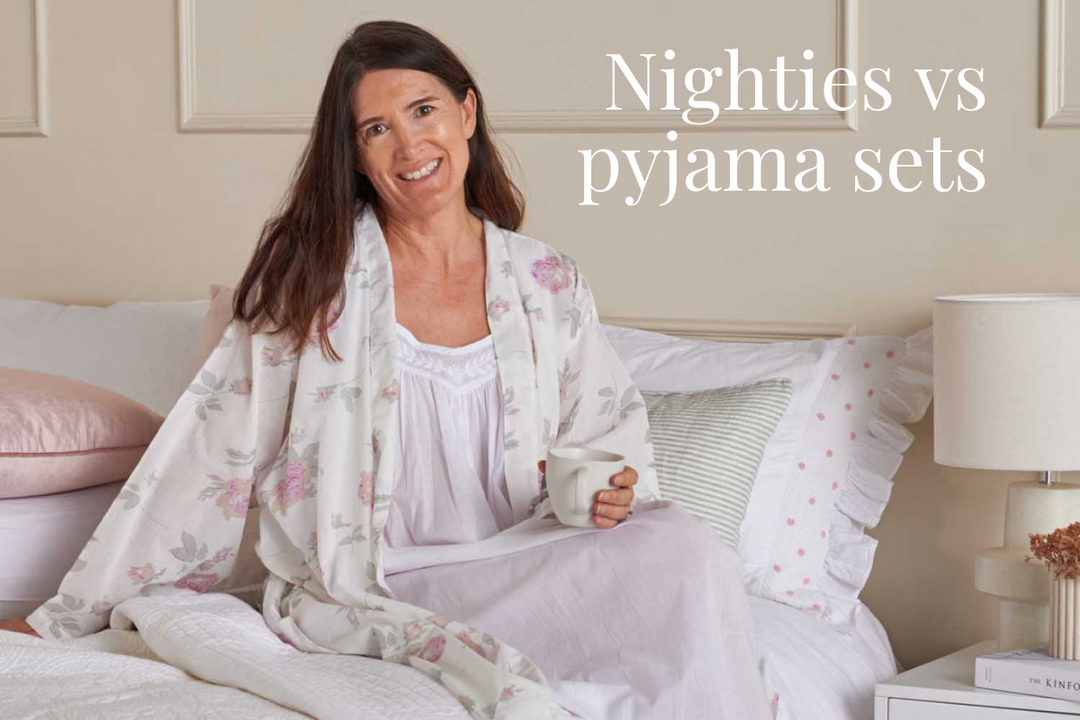Sleeping through menopause: Why it’s so hard (and what helps)

Sleeping through menopause: Why it’s so hard (and what helps)
Menopause is one of those things nobody warns you about properly—until you’re in the thick of it at 3am, sweat-soaked, wide awake, and Googling “why does menopause affect sleep?” on your phone.
If that’s you, you’re not alone. Roughly 40–60% of women report sleep disturbances during menopause, and that number climbs higher during perimenopause (the years leading up to it). And yet, the advice out there is often vague or outdated.
In this guide, we’re digging into exactly why menopause disrupts sleep—and what you can actually do about it. Whether you’re dealing with anxiety, night sweats, or just can’t seem to stay asleep, this one’s for you.
Why Does Menopause affect sleep?
Let’s get straight to it: hormones are the main culprit. Specifically, the drop in estrogen and progesterone.
These hormones don’t just regulate your reproductive system—they also affect your brain’s ability to manage stress, body temperature, and sleep cycles.
Here’s how that hormonal cocktail affects your night:
Estrogen drops → your body struggles to regulate temperature → hot flushes and night sweats
Progesterone drops → a calming, sleep-supportive hormone disappears → more anxiety and trouble winding down
Melatonin may decrease with age too → harder to fall or stay asleep
That’s a triple hit. And it’s no wonder you’re exhausted.
Anxiety, Brain Fog, and the 3am Spiral
One of the most Googled questions is “can menopause cause sleep problems and anxiety?” The answer is a loud yes.
Many women experience:
Racing thoughts at bedtime
Waking up panicked or wired
Feeling tired but wired—a sensation of physical exhaustion but mental alertness
This isn’t just in your head. Lower estrogen levels can trigger a rise in cortisol (the stress hormone) and disrupt GABA, the brain’s natural calming system.
If you’ve noticed your brain fog, mood swings, and sleep problems showing up together—that’s why. They’re connected.
How much sleep do you really need during menopause?
Most experts agree that adults need 7–9 hours of sleep per night. But during perimenopause and menopause, you might find yourself getting fragmented sleep—in bed for 8 hours but only managing 5.5 of real, deep rest.
The key isn’t just the number of hours—it’s the quality of your sleep cycles, especially:
Stage 3 deep sleep, where tissue repair and memory consolidation happen
REM sleep, where your brain resets and mood regulation occurs
Hormonal changes often prevent you from reaching these deeper stages. That’s why you might wake up after 8 hours and still feel groggy.
Hot Nights, cold comforts: The temperature problem
Night sweats are one of the most common sleep complaints during menopause. They’re often sudden, intense, and completely disruptive.
Why do they happen?
Estrogen helps your brain regulate temperature. When it drops, your body overreacts to slight increases in heat—flushing, sweating, and waking you up in the process.
Here’s what helps:
Cooling bed linen like Actil or Egyptian cotton or bamboo (both naturally breathable and temperature regulating)
Cooling blanket designed for airflow (we’ll cover product recs soon)
Avoiding heavy synthetics or high-thread-count sateens that trap heat
The right bed cover or sheet set can make a bigger difference than you think.
The best solution for menopausal sleep
Here’s where your sleep sanctuary gets technical. If you’re wondering “what helps menopause sleep problems?”, your bedding is a great place to start.
Natural fibres: Pure cotton, bamboo, or linen regulate heat and wick moisture
Layering: Ditch the all-in-one doona and opt for lightweight layers so you can adjust as your body temp shifts
Cooling pillows: Your head traps heat too—look for gel-infused or breathable fill
At The Bedspread Shop, we often recommend:
Egyptian cotton sheets – breathable, exceptionally cool, crisp cotton percale
Actil First Line sheets – long-lasting cotton sheeting
Natural fibre Throws – cotton/linen easy to peel off or add on during the night
Feather/down blankets- practical and stylish lightweight warmth when you need it
You deserve bedding that works with your body, not against it.
The menopause sleep checklist
If you’re dealing with:
Hot flushes
Waking at 3am
Anxiety spirals
Brain fog and fatigue
Consider the following:
Your bed setup
Breathable sheets (cotton, bamboo, linen)
Cooling pillow or protector
Lightweight, layerable blankets (ditch the doona trap)
No polyester (they trap heat)
Your Evening Ritual
No screens 1 hour before bed (blue light kills melatonin)
A short walk or gentle stretch after dinner
Cool shower or bath (drops core temp = better sleep onset)
Cut back alcohol and sugar after 6pm
Your Mental State
Journal or brain-dump before bed (especially during perimenopause)
Deep breathing or guided meditation
Limit caffeine—especially after lunch
Read something low-stakes (now’s not the time for true crime)
You don’t need to do all of these. But a combination of 3–5 changes can significantly improve your sleep quality.
Natural sleep aids that work
You’ve probably tried (or Googled) a million supplements. Here’s what has some evidence behind it:
Magnesium Glycinate / Supports relaxation, muscle recovery, and sleep quality. Especially useful if your anxiety spikes before bed
Valerian Root / A herbal sedative that may improve sleep latency (how fast you fall asleep)
Melatonin / Best for sleep onset, not maintenance. Works well if you're wide awake at bedtime but not great for staying asleep all night.
Lifestyle habits that help with better sleep
Move your body
Gentle exercise (like yoga, walking, or Pilates) helps regulate cortisol
Avoid high-intensity workouts after 6pm—they spike adrenaline
Keep your bedroom cool
Ideal sleep temp: 16–20°C
Open a window, use a fan, or try a cooling mattress topper
Avoid heavy PJs—opt for light cotton or moisture-wicking fabric
Keep a Consistent Wake Time
Yes, even on weekends. The more consistent your circadian rhythm, the better your sleep regulation—especially during hormonal chaos.
Bonus: The Menopause Sleep Blanket
You may have heard of weighted blankets—but for menopause, they’re not always ideal unless they’re cooling versions.
Instead, try: Feather down blanket – breathable, light, and perfect for hot bodied sleepers
At The Bedspread Shop, customers swear by:
“I swapped to Egyptian cotton sheets and a cotton blanket and haven’t woken up in a sweat since. Game-changer.” – Karen, VIC
You’re not crazy. It’s hormonal.
If you’re waking up feeling like a stranger in your own body, please know: it’s not weakness, and it’s not forever. It’s hormones.
But there are things you can do—today—to take back control of your nights. It might be as simple as new sheets, a calming pre-bed ritual, or recognising that no, you’re not the only one awake at 3am searching “menopause sleep anxiety help.”
And we’ve got the bedding to help.
Recommended from The Bedspread Shop:
Egyptian cotton percale sheets – cool, crisp, breathable sheets and pillowcases
Actil First Line Sheet Set – breathable, hotel-quality cotton
Lightweight Wool throws – perfect for layering
Apartment quilt – cool, and perfect for distributing warmth where you want it
Feather down blankets- Lightweight warmth when you need it
Want to sleep better? Sign up to our newsletter for more sleep tips, plus VIP offers on our most-loved sheets and bedding.
Or explore the collection now ➝ Shop Cooling Bedding





Leave a comment